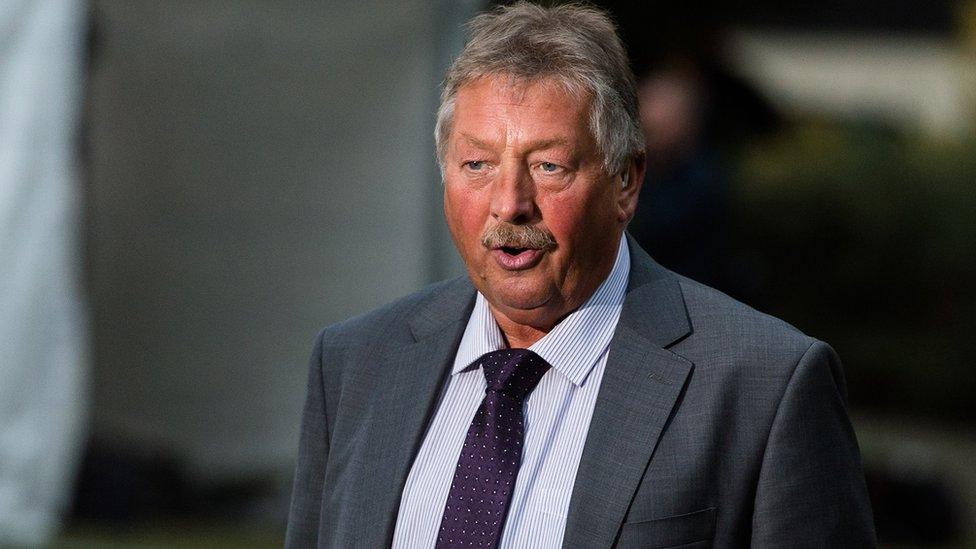Brexit: DUP refuses to support call for early election
- Published

The DUP did not support the government's call for an early election in the House of Commons on Monday night, instead abstaining.
MPs voted on a motion to allow an election to take place on 12 December.
Prime Minister Boris Johnson also formally accepted the EU's offer of a Brexit extension until 31 January 2020 agreed earlier.
Independent Unionist MP Lady Sylvia Hermon voted against the motion.
Mr Johnson accused Labour and other parties opposed to an election of being scared of the electorate, which was rejected by the DUP.
DUP MP Sammy Wilson said his party did not fear a general election - but would not vote for anything that could take Parliament closer to approving a Brexit deal his party is opposed to.
During the debate he said: "We will not be supporting this motion tonight, but not because we are scared of the electorate.
"In fact the unionist electorate are angry, so despairing and so bewildered at the way in which the prime minister has broken his promises to Northern Ireland that they would return 100 DUP MPs."
'Death deal to the union'
Mr Wilson's comments echoed concerns from his colleague Ian Paisley.
Allow X content?
This article contains content provided by X. We ask for your permission before anything is loaded, as they may be using cookies and other technologies. You may want to read X’s cookie policy, external and privacy policy, external before accepting. To view this content choose ‘accept and continue’.
He had asked Mr Johnson if he won a majority in a future election, if he would try to renegotiate his Brexit deal again or try to pass it through Parliament.
The prime minister said his deal was "excellent" and that he believed all MPs should support it.
Mr Wilson also described the prime minister's Brexit plan as "the death deal to the union".
He added: "We want to make sure there's nothing that happens in this house that allows the prime minister to deliver on a deal which he said he would never do."
The DUP voted with the government the first two times it tried to secure a general election, but those votes took place before the details of the new Brexit deal emerged.